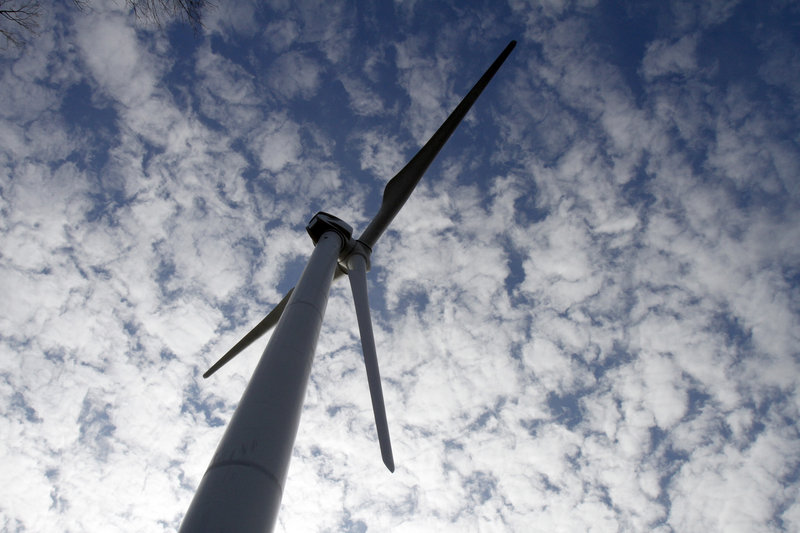MONTPELIER, Vt. — Two key state lawmakers said Tuesday that Vermont won’t meet its goal of getting 20 percent of its electricity from renewable sources by 2017, and they’re withdrawing their support for setting a new goal of 30 percent renewable power by 2025.
Reps. Tony Klein and Margaret Cheney, the chairman and vice chairwoman of the House Natural Resources and Energy Committee, also said legislation passed three years ago to offer premium prices to renewable energy project developers had fallen far short of its goal of bringing 50 megawatts of new renewable power onto the Vermont electric grid. Cheney said just 7.1 megawatts worth of such projects had been built.
The two Democrats said they were surprised to learn recently from the state Department of Public Service – the DPS regulates utilities – that the state likely would fall short of its 2017 goal. Of backing away from the more ambitious 2025 goal, Cheney said, “We don’t want to put out a percentage because it sounds good and not be able to meet it.”
“You have to balance ambition and what’s doable,” Klein said.
Citing a DPS report, the lawmakers said renewable energy projects already operating and in the pipeline currently add up to 16.5 percent of Vermont’s retail electric sales. Five years is not long enough to plan and build enough new projects to reach the 20 percent goal, they said. And development is expected to slow in part because two key federal incentives for renewable power development are expiring.
The energy committee has been working since early January on legislation that had set the new 2025 goal. Klein said he was putting that bill aside to work on legislation to move the state toward mandatory recycling of solid waste. He said he had asked DPS officials to appear before the committee next week to make a new proposal regarding renewable energy.
Klein and Cheney said they had been hearing a groundswell of concern voiced by business lobbyists that getting more power from renewable sources, which are usually more expensive than electricity generated with nuclear or fossil-fuel-fired power, would drive up electric rates and make Vermont less competitive economically.
Scaling back the drive for renewable power is a big change for a Legislature and administration that have been pushing to close the Vermont Yankee nuclear plant and had touted wind, solar, biomass and other renewable energy sources as keys to fighting climate change tied to burning fossil fuels.
A long-term energy plan issued by Gov. Peter Shumlin’s administration in the fall calls for Vermont to get 90 percent of its energy – for electricity, transportation and space heating – from renewable sources by 2050.
Elizabeth Miller, DPS commissioner and Shumlin’s point person on energy issues, agreed there is doubt about the state meeting its 2017 renewable power goal. If all projects now in the planning stages are built – and that’s uncertain – Vermont would be getting about 18 percent of its power from renewable sources by 2017, she said.
Renewable energy advocates said they would continue to push for a more ambitious agenda.
Gabrielle Stebbins, executive director of the industry group Renewable Energy Vermont, rebutted business concerns about harm to Vermont’s economy by saying her industry had the potential to add many jobs in the state.
Ben Walsh, energy advocate with the Vermont Public Interest Research Group, said his group would push Shumlin and lawmakers to keep campaign promises about supporting renewable energy.
“We live in a state where people elected an administration and legislature that … said they were going to build a future of clean energy for Vermonters,” Walsh said. “We’re still very hopeful that’s what will happen in the end.”
Send questions/comments to the editors.



Success. Please wait for the page to reload. If the page does not reload within 5 seconds, please refresh the page.
Enter your email and password to access comments.
Hi, to comment on stories you must . This profile is in addition to your subscription and website login.
Already have a commenting profile? .
Invalid username/password.
Please check your email to confirm and complete your registration.
Only subscribers are eligible to post comments. Please subscribe or login first for digital access. Here’s why.
Use the form below to reset your password. When you've submitted your account email, we will send an email with a reset code.